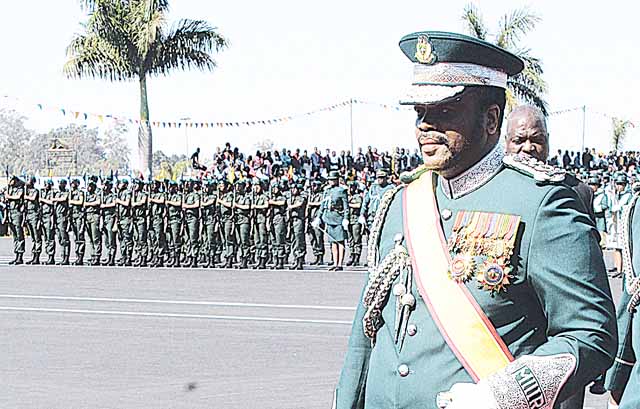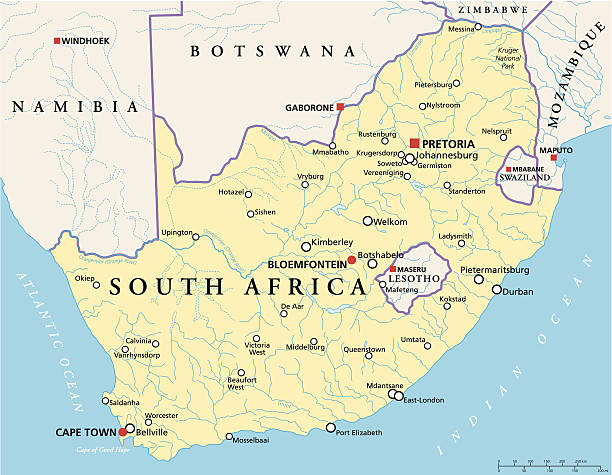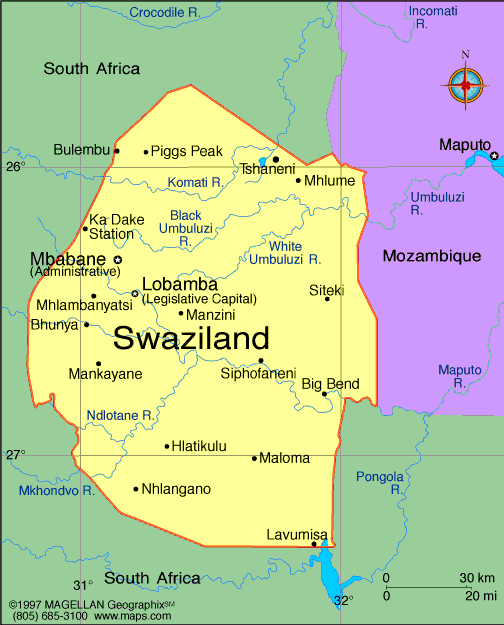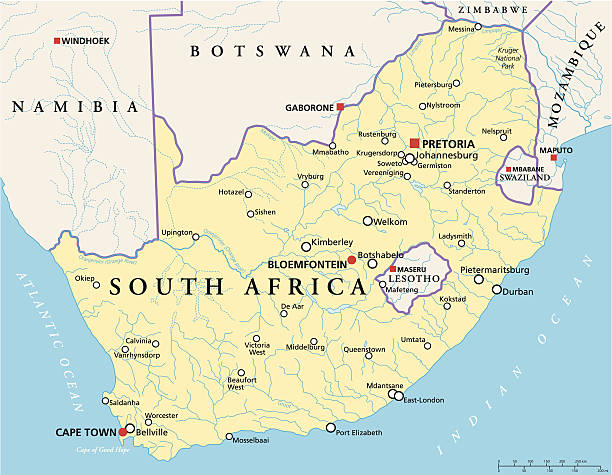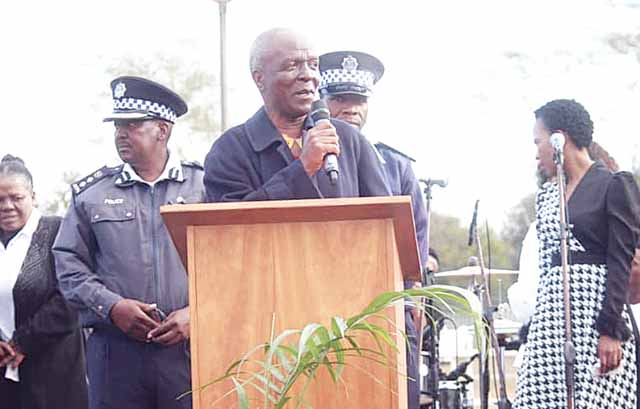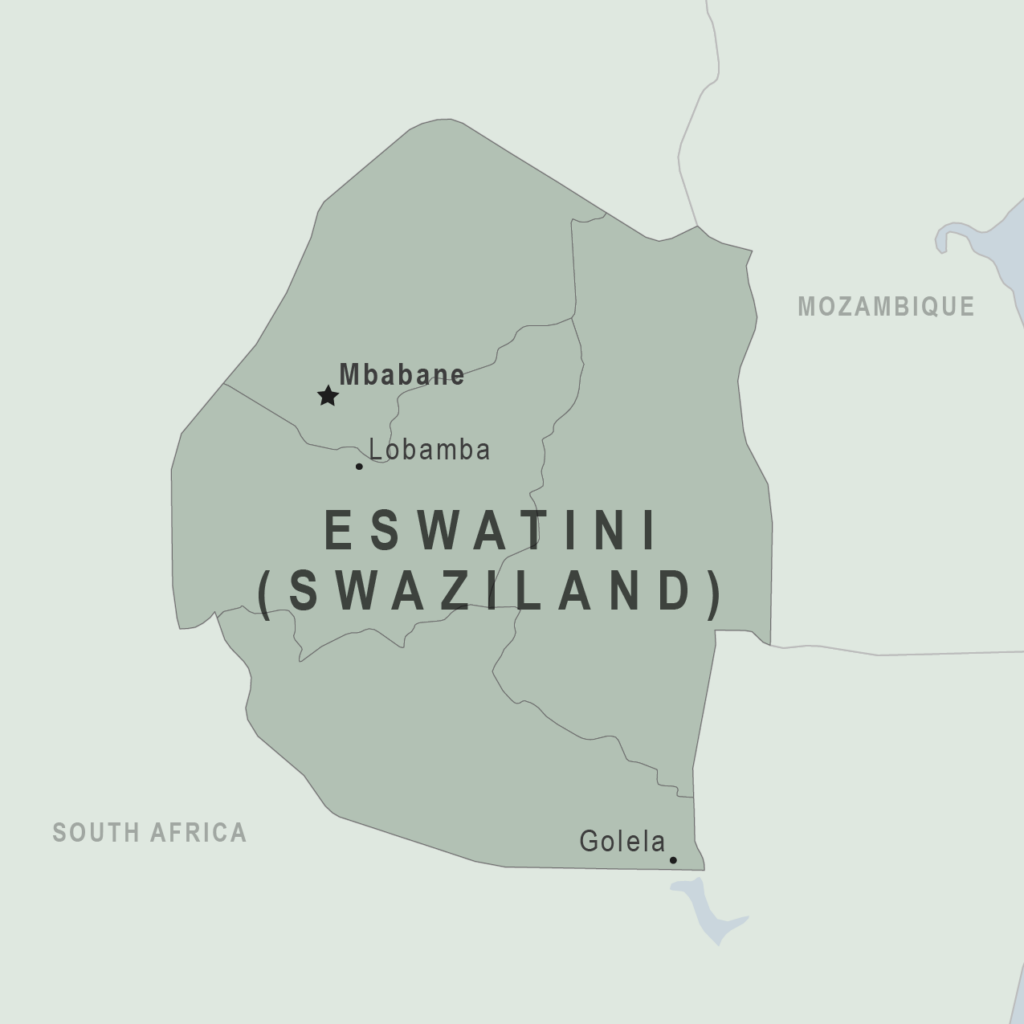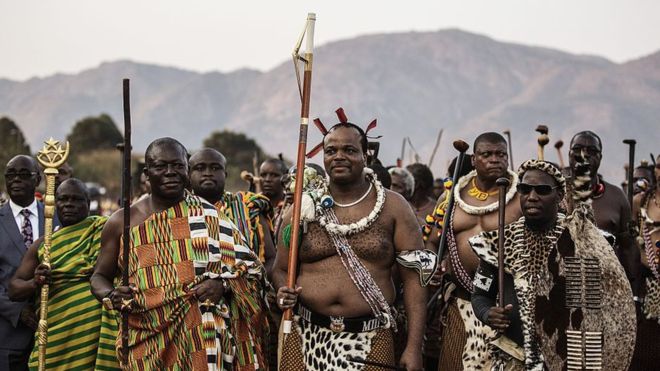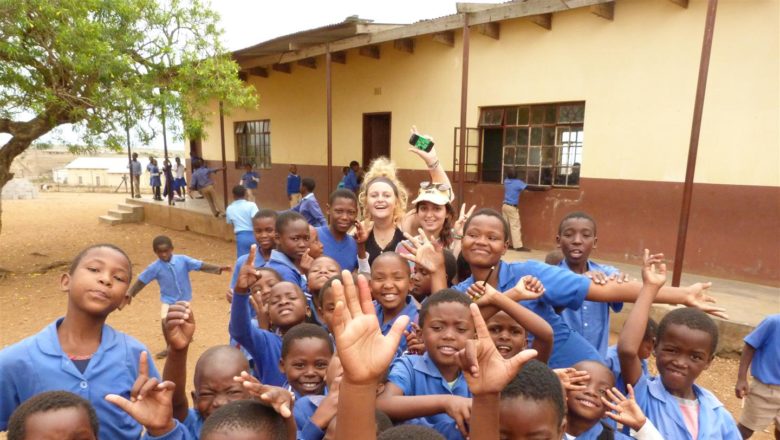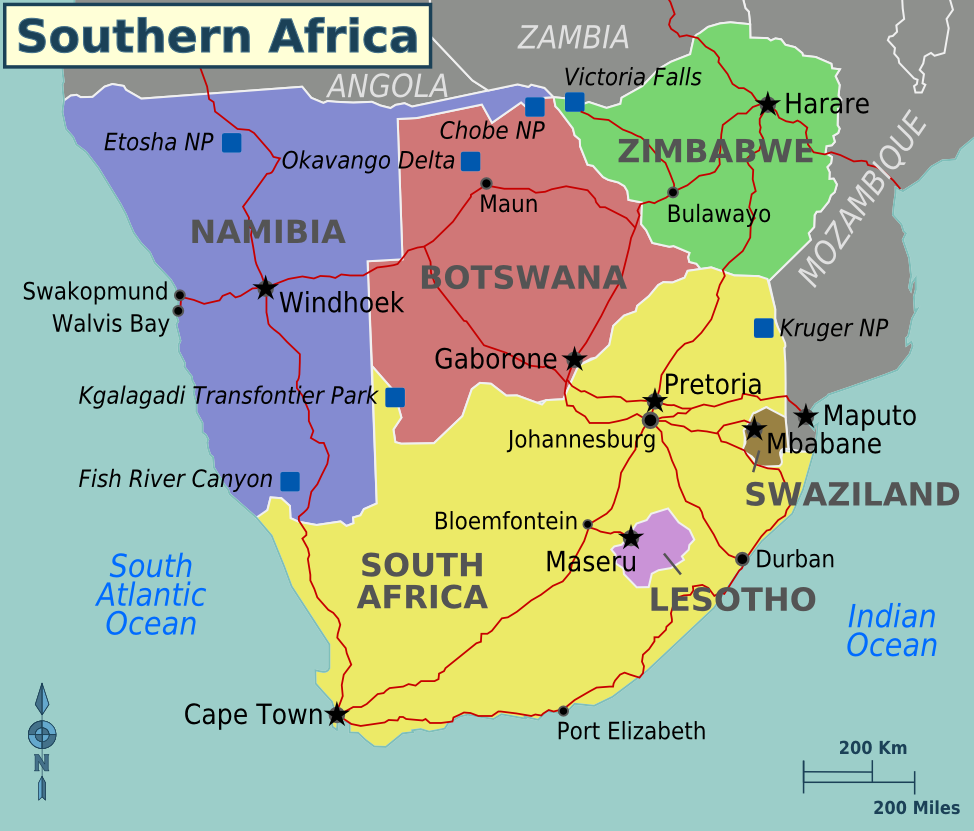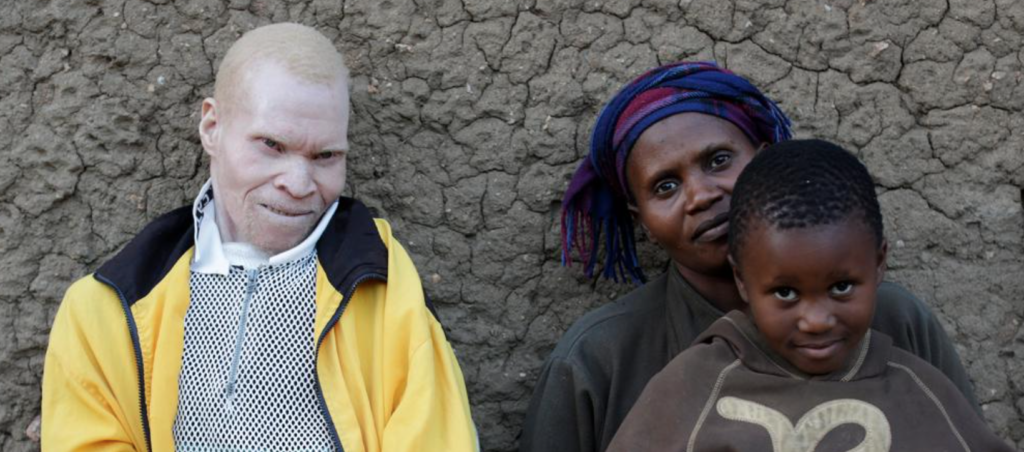Msombuluko Mantimakhulu and two teenagers who are allegedly his cousins were arrested by police and soldiers and accused of involvement in the disappearance of Mantimakhulu’s sster-in-law. Relatives accused Mantimakhulu of ritually murdering his sister-in-law, using her body parts for ‘muti’ purposes. It’s election time in Swaziland, hence people fear ‘muti murders’ by ambitious politicians who sometimes hire other people to do the dirty work.
After all, recently, “(…) his Majesty the King (…) warned against ritual killings. He said now that it was elections time, there were people who believed that if they used human body parts, they would be successful. The King warned that such should stop and gave an example that it appeared the people who performed rituals sometimes targeted people with albinism people. He said the ritual killers believed that a person who had albinism would bring luck. His Majesty then said this was not true and that such should not be practiced.”
Msombuluko Mantimakhulu and the two teenagers were heavily beaten and tortured. The soldiers tried to extract a confession. It all happened last month. It’s a frightening story about the abuse of power by law enforcement officiers. It turned out later, that Mantimakhulu’s sister-in-law was alive and had gone to stay with her relatives.
It is not known what happened to those who were responsible for torturing Msombuluko Mantimakhulu and the two teenagers. The rule of law in the kingdom of King Mswati III leaves a lot to be desired….
(FVDK)

Swaziland / Eswatini: Soldiers torture man accused of ritual murder
Published: August 5, 2023
By: Joseph Zulu – Times of Swaziland
MAFUCULA – When his sister-in-law vanished, Msombuluko Mantimakhulu had no idea that her disappearance would leave him with injuries all over his body.
Mantimakhulu, who works in South Africa (SA), had returned to his home area around Mafucula, but it is alleged that his sister-in-law then disappeared. It was gathered that her in-laws did not know where she had gone, but feared that she had been murdered. He said some of the relatives were of the view that because it was general elections time, maybe she had been kidnapped and then killed for ritual purposes. They allegedly accused him of killing his sister-in-law for body parts. Mantimakhulu said some of the family members were of the view that he was involved in her disappearance. He said he did not have a reason to kill his sister-in-law, because they were close and that he sometimes even gave her some money.
Trouble
According to Mantimakhulu, trouble started when the matter was first reported to the local community police that a woman was missing. He said when the community police were called, they picked up two teenagers who are said to be Mantimakhulu’s cousins. Mantimakhulu alleged the community police members assaulted the two teenagers, so as to force a confession from them. He alleged they beat the children then also handcuffed them to keep them from running away. “It is not right to handcuff children,” he said. The children are alleged to have been tortured for over an hour, demanding that they reveal who killed the woman.
When Mantimakhulu was asked why the teenagers were accused of killing the woman, he said he did not understand why but that he was the target. He said they wanted to force the children to confess that he was the one who had killed his sister-in-law. He said as if the assault was not enough, the men allegedly took the children to a nearby pond where they were assaulted. Mantimakhulu said the community police members then allegedly dipped the children’s into the pond and threatened that they would drown them.
Threatened
Mantimakhulu alleged that the children’s heads were held under the water and threatened that they would be drowned if they did not reveal who killed the woman who was missing. He purported that after realising that they were not getting any answers from the children being assaulted, the police from Tshaneni Police Post were called in. He said police officers also arrived to investigate the disappearance of his sister-in-law, whom at the time, it was alleged she had been murdered.
He alleged that after he was suspected of having killed his sister- in-law, the matter was then reported to the police. Mantimakhulu said police officers from Tshaneni were called, and that they went to interview him over the allegedly missing woman. However, unlike the community police members, the Royal Eswatini Police Service (REPS) officers are said to have refused to arrest Mantimakhulu and then left, leaving him at the homestead in Mafucula, around a place known as Duma.
Arresting
Mantimakhulu then said after some of the family members noticed that the police officers had left without arresting him, they then decided to call some soldiers who are said to be based around Maphiveni near Simunye. It is alleged that about four soldiers then pounced on Mantimakhulu on July 27, 2023, at around noon. Mantimakhulu said when the soldiers arrived, he told them that the police officers had already spoken to him and that they left him behind because they did not believe that he had murdered his sister-in-law.
However, the soldiers are said to have responded that they were not like police officers. He said the soldiers told him that police officers do not want to work. Mantimakhulu said before they began assaulting him, they told him that by the time they left, they would make sure that he revealed how he allegedly killed his sister-in-law. “I told them I am not a killer, but they did not want to hear my side of the story,” said Mantimakhulu. Mantimakhulu said the soldiers then began to assault him and that they hit him all over his body. He alleged that he was kicked, and then forced to confess that he had killed his sister-in-law. “I refused to agree to something I did not do,” he said. He mentioned that he was punched, kicked with boots and blunt objects, but he could not tell what they were using to assault him.
He said he was then taken to a nearby lake, where he was allegedly submerged into the water so that he did not come up, out of the water. “I felt like I was drowning,” he said. He said one soldier who pressed against his body with foot while another would press against his head while being held under the water. Mantimakhulu said the soldiers continued assaulting him for several hours. He said no matter how many times he cried for them to stop, they continued assaulting him until they stopped when they realised that he had not killed anyone.
Assault
He also revealed that before they began to assault him, they warned some of the nearby residents against taking videos of the alleged assault. antimakhulu said they used vulgar language, as they assaulted him, demanding that he should reveal what he did to his sister-in-law. It turned out later, that the woman was alive and had gone to stay with her relatives. Mantimakhulu said his sister-in-law had left without telling anyone because there were some disputes at their home. He was also asked why some of the family members suspected that he had killed her. He said he did not know the reason but that it could be that they found some fencing material belonging to her in his house. He said maybe with this information, they could have concluded that he had killed her and taken some of her fencing material.
“I have no reason to kill the woman,” he said. Sipho Mngomezulu, an uncle to Mantimakhulu said he was shocked at the manner in which his nephew was treated. He alleged the soldiers beat him as if they were killing him. Mngomezulu also alleged that the matter was reported to the police but that they had not taken any action to arrest the soldiers. Meanwhile, Chief Police Information and Communications Officer Superintendent Phindile Vilakati, speaking through Inspector Mazwi Ndzimandze said the assault had not been reported to the police at Tshaneni. Also, Ndzimandze said there was also no case of a woman reported to have gone missing, but was later found alive.
Mantimakhulu, when told that the police said they were not aware of his assault, said this was not true. He said instead they allegedly told him they would not be able to arrest the soldiers. Mantimakhulu said the police told him that soldiers always protected each other and they would not handover their colleagues to be arrested by the police. Lieutenant Tengetile Khumalo, the Public Relations Officer for the Umbutfo Eswatini Defence Force (UEDF) was called regarding the alleged assault by the soldiers who are based at the Maphiveni unction, leading to Tshanenini, Simunye or Lomahahsa. She had not responded to the questions sent to her at the time of compiling the report.
Khumalo was also asked if there was any means members of the public in such circumstances could report if they were not treated fairly.
Noteworthy, Mantimakhulu insisted that both matters had been reported to the police and that officers from Tshaneni Police Station even interviewed him about his sister-in-law when it had been alleged that she was nowhere to be found, that she may have been killed.
Meanwhile, his Majesty the King, in his speech during the Correctional Day and Pass-out Parade warned against ritual killings. He said now that it was elections time, there were people who believed that if they used human body parts, they would be successful. The King warned that such should stop and gave an example that it appeared the people who performed rituals sometimes targeted people with albinism people. He said the ritual killers believed that a person who had albinism would bring luck. His Majesty then said this was not true and that such should not be practiced.
Source: Soldiers torture, beat man accused of killing sister-in-law
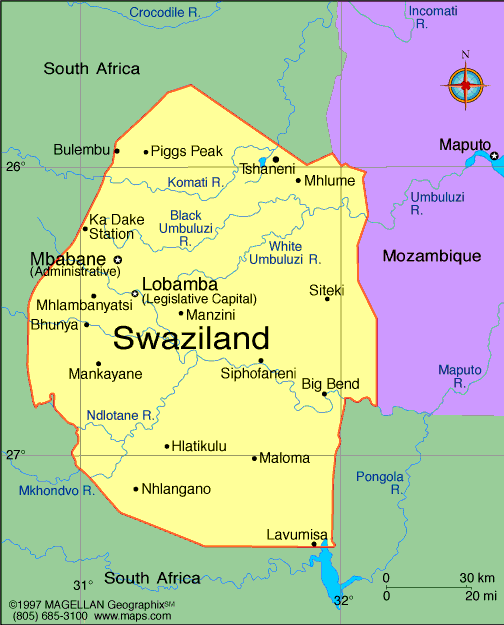
Introducing eSwatini / Swaziland – click here

